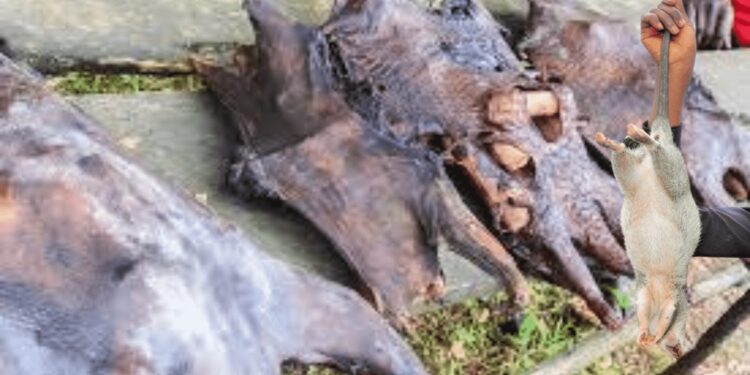Nigeria is a country rich in culture, tradition, and a diverse culinary heritage. Among the myriad of dishes enjoyed across the nation, some delicacies come with hidden dangers. While these foods are cherished and deeply rooted in Nigerian culture, it is important to be aware of the potential health risks they pose. Here, we explore five Nigerian delicacies that can be dangerous or unhealthy if not properly sourced, handled, or prepared.
1. Bush Meat (Various Wild Animals)
Danger: Bush meat can carry zoonotic diseases such as Ebola and other viral hemorrhagic fevers. These diseases can be transmitted from animals to humans, posing significant health risks.
Bush meat is a popular delicacy in many parts of Nigeria, often seen as a luxury item and a symbol of traditional culinary practices. It includes a variety of wild animals such as antelope, monkey, and rodents. However, these animals can be reservoirs for viruses and bacteria that are harmful to humans. For instance, the Ebola virus is known to have been transmitted to humans through contact with infected bush meat. To mitigate these risks, it is essential to ensure that bush meat is properly handled and thoroughly cooked. This kills any pathogens that may be present, making the meat safer to consume.
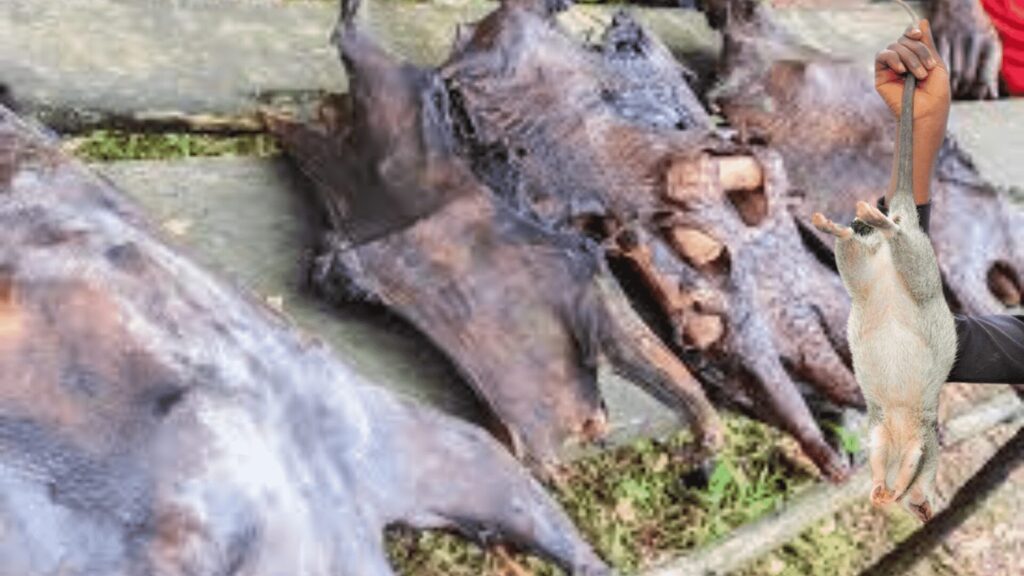
2. Uncooked Cassava (Garri)
Danger: Cassava contains cyanogenic glycosides, which release cyanide when not properly processed. Consuming poorly processed cassava can lead to cyanide poisoning, causing symptoms like dizziness, headache, and even death.
Cassava is a staple food in Nigeria, widely consumed in various forms such as garri, fufu, and tapioca. While it is an important source of carbohydrates, cassava contains naturally occurring compounds called cyanogenic glycosides. When ingested, these compounds can release cyanide, a potent toxin. The traditional processing methods of soaking, fermenting, and drying are crucial as they significantly reduce the cyanide content. However, when these processes are not properly followed, the risk of cyanide poisoning increases. Symptoms of cyanide poisoning include headache, dizziness, vomiting, and in severe cases, death. It is therefore vital to ensure that cassava is properly processed before consumption.
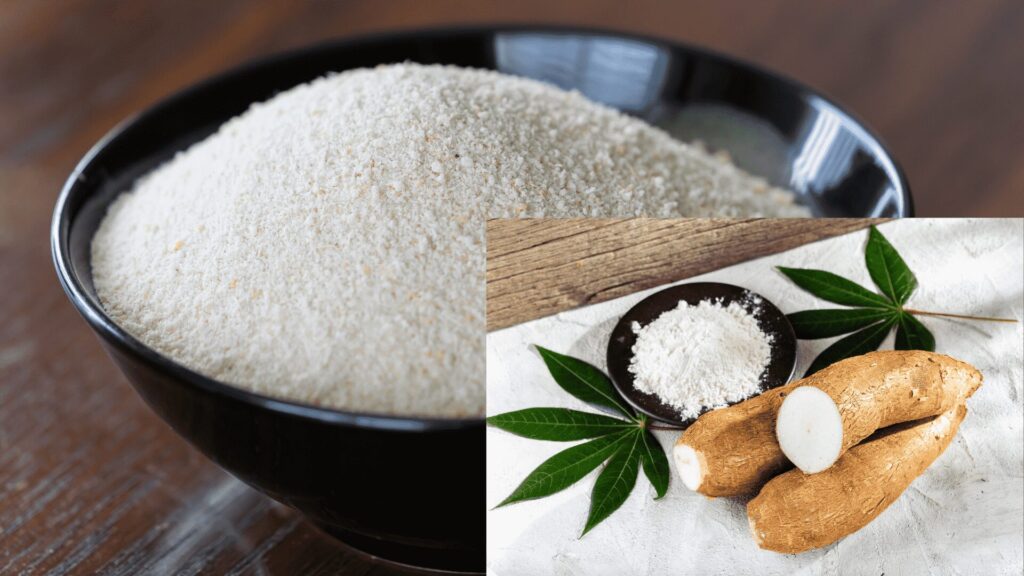
3. Kpomo (Cow Skin)
Danger: Kpomo itself is safe, but when sourced from industrial areas, it may be contaminated with harmful chemicals and heavy metals. These contaminants can pose serious health risks, including cancer and organ damage.
Kpomo, or cow skin, is a popular ingredient in many Nigerian dishes. It is prized for its chewy texture and is often used in soups and stews. However, the safety of kpomo depends heavily on its source. Cow skins obtained from industrial areas may be exposed to chemicals and heavy metals during processing. These contaminants can remain in the kpomo and pose significant health risks when consumed. Chemicals such as formaldehyde, used in the preservation of skins, are particularly harmful and have been linked to cancer and organ damage. To ensure safety, it is important to source kpomo from reputable suppliers and ensure it is thoroughly cleaned and cooked before consumption.
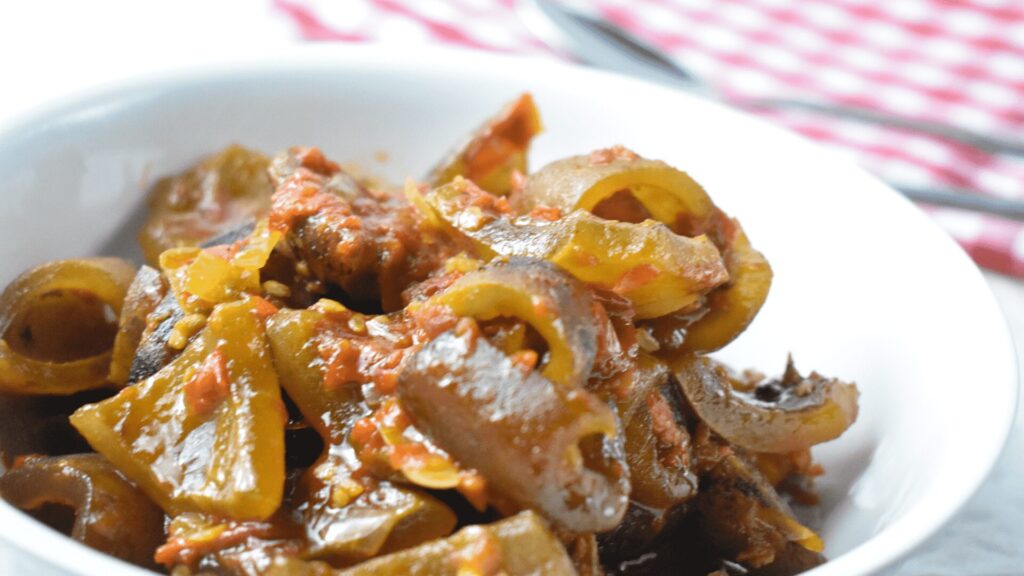
4. Ogbono Soup Made with Unwashed Ogbono Seeds
Danger: Ogbono seeds, if not properly cleaned, can contain aflatoxins produced by mold. Aflatoxins are carcinogenic and can cause liver damage.
Ogbono soup, made from the seeds of the African wild mango, is a beloved dish in Nigerian cuisine. The seeds are ground into a powder that thickens the soup, giving it a unique flavor and texture. However, ogbono seeds can be susceptible to mold contamination if not properly cleaned and stored. Mold can produce aflatoxins, which are potent carcinogens that can cause liver damage and increase the risk of liver cancer. To reduce this risk, it is important to ensure that ogbono seeds are properly cleaned, dried, and stored in a dry environment. Additionally, buying from trusted suppliers who adhere to good storage practices can help ensure the safety of the seeds.
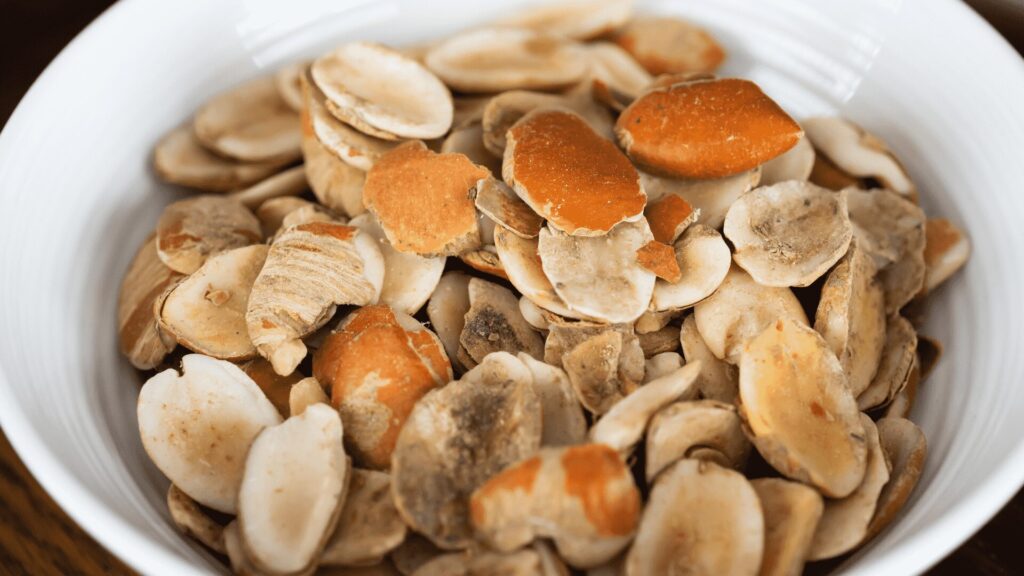
5. Palm Wine
Danger: While generally safe, improperly handled or stored palm wine can ferment further into vinegar or alcohol levels that cause intoxication and health issues. Additionally, contamination during tapping or storage can introduce harmful bacteria.
Palm wine is a traditional alcoholic beverage in Nigeria, tapped from the sap of palm trees. It is enjoyed for its sweet taste and slightly alcoholic content. However, palm wine is highly perishable and can quickly ferment into vinegar or develop high alcohol content if not consumed fresh. Over-fermented palm wine can cause intoxication and other health issues. Furthermore, if the tapping and storage process is not hygienic, the wine can become contaminated with harmful bacteria, leading to foodborne illnesses. To enjoy palm wine safely, it is best to consume it fresh and ensure it is sourced from hygienic and reputable vendors.
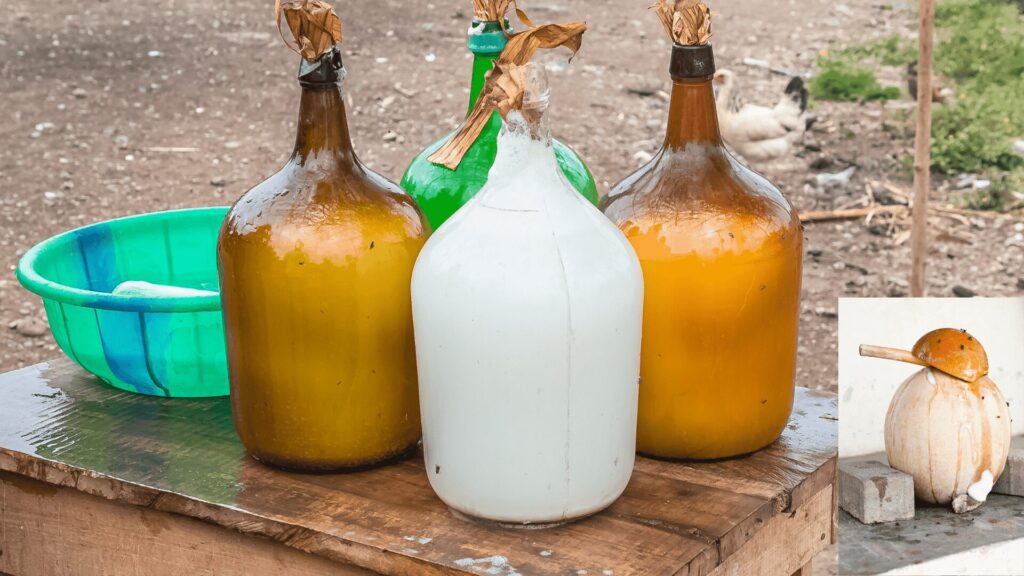
While these delicacies are integral to Nigerian cuisine and culture, it is crucial to be aware of the potential health risks. Proper sourcing, handling, and preparation can minimize these dangers, allowing us to enjoy these traditional foods safely. By taking these precautions, we can preserve the rich culinary heritage of Nigeria while safeguarding our health. Enjoying traditional dishes responsibly ensures that future generations can continue to appreciate and celebrate Nigerian cuisine.



































